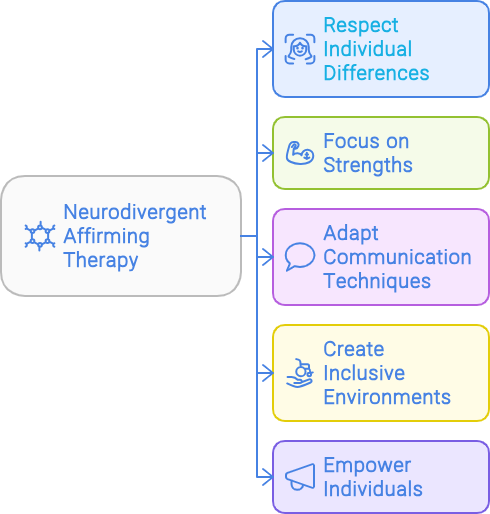
The Benefits of Self-Compassion for Adhd Women
Self-compassion has been shown to be beneficial for a wide range of populations, including those with ADHD.
ADHD women need self compassion. They often judge themselves harshly and find forgiving their mistakes hard. Practicing self-compassion can help break this negative pattern.
Being kind to ourselves allows us to accept our flaws and mistakes and develop a greater capacity for self-forgiveness. Self-compassion can also reduce feelings of shame and inadequacy that often affect ADHD women.
Learning how to be self-compassionate can enhance every aspect of your life.
So what is Self Compassion?
Kristen Neff has divided the definition of self-compassion into the components of mindfulness, common humanity, and self-kindness.
1.Mindfulness is the ability to acknowledge and confront our complex emotions, but it can be difficult to learn. Many people avoid facing these emotions because they lack the tools needed to do so. For women with ADHD, who have learned to suppress their emotions and disconnect from their bodies to meet expectations, it can be challenging to recognize when they are under stress or tired. The first step is to observe and recognize when they are going through a tough time and need compassion.
2. Common Humanity. It's important to remember that we are not alone in our struggles and difficulties. When we experience negative emotions or face challenges, it's likely that others have gone through or are currently going through similar situations. This awareness of our common humanity can help us feel validated and less isolated. As a woman with ADHD, it's common to feel different and alone, but this is not the case. Many people, especially women, feel they don't fit society's expectations. Remembering that we are valuable for who we are and don't need to change to fit in is important.
3.Self Kindness. The final step of self-compassion for ADHD women is Self-kindness. Self-kindness is the intention and practice of being kind and compassionate to ourselves. To want to relieve our own suffering. This can be cultivated and begins with the attempts to say kind words to ourselves in times of difficulty. Practice here makes perfect!are huge.
Benefits for ADHD Women of Self Compassion
Studies on neurotypical people show that the more self-compassion you have, the less likely you are to be:
And the more likely you are to:
- feel satisfied with life
- cope well with your emotions
- have good self-esteem
- self-acceptance
- be autonomous
- feel competent and
- get along well with others
- feel happy
- be optimistic
- be curious
- be agreeable
- be conscientious
What does the research on adhd and self-compassion show?
Because of our search to cure and fix adhd rather than to support it, there hasn't been ENOUGH research on adhd and self-compassion. However, I was able to find two studies that show benefits to self-compassion for adhd women.
Research indicates that individuals with ADHD tend to have lower levels of self-compassion. It has also been found that accepting ADHD behaviors, instead of criticizing them, can promote more supportive behavior.
Moreover, self-compassion can be particularly beneficial for women with ADHD, helping them navigate challenges, manage symptoms, and improve their overall well-being. This is especially important as ADHD women often face ongoing stressors and difficulties and receive little support from society.
Fears of self-compassion
If it's so great? Why aren't more ADHD women practicing it?
Women are often afraid if they are self-compassionate, they will never hold themselves accountable for doing anything important. The opposite is true. Self-compassion doesn’t mean JUST being nice to ourselves to soothe your pain and suffering. Self-compassion isn't indulgent or avoidant. It is wise and skillful. Like good parenting, it loves and cradles you first, but then calls you to hold yourself accountable to be the best you can be and make good choices for yourself.
Mindfulness and Self-Compassion
Self-compassion is being mindful of our pain or suffering and intentional about soothing and comforting ourselves so that we can alleviate our suffering in a kind and wise way.
One of the main reasons we have difficulty being self-compassionate is that we have a hard time being mindful enough to recognize when we need it.
We are often not aware of how cruel we are to ourselves, and we are programmed to believe cruelty is a standard way to relate to ourselves. We often fear letting go of the critical voice, but research has shown that it isn't helpful; it causes avoidance and procrastination and reinforces shame.
But offering ourselves kindness when we need it has excellent benefits, and ignoring it causes us to become sick and lead our lives unproductively, so it behooves us to learn this skill.
What are some ways Adhd Women can Practice Self Compassion?
Below are links to many different ways to practice. But remember, it does take practice. Find a way that feels right and keep doing it!
How Self-Compassionate are you?
You see how self-compassionate you are by using this tool developed by Dr Kristen Neff, the self-compassion scale (SCS). This scale is used in the research studies that have been done over the past 17 years (there are well over 1000).
Shame and self-criticism are enormous issues for ADHD women. They often feel like they are not good enough, which keeps them from reaching their full potential. However, with self-compassion, these negative thoughts and feelings can be reduced or even eliminated. Research has shown that when ADHD women practice self-compassion, almost every area of their life improves, including work productivity, mental health, relationships, and more. So, if you’re struggling with shame and self-criticism, try giving yourself some kindness and understanding instead. It just might be the change you need to reach your goals.
References
Stevens, L., & Woodruff, C. C. (2018). The neuroscience of empathy, compassion, and self-compassion. Elsevier Academic Press.
Beaton, D. M., Sirois, F. M., & Milne, B. (2022, March 25). The role of self‐compassion in the mental health of adults with ADHD. https://scite.ai/reports/10.1002/jclp.23354
Beaton, D. M., Sirois, F. M., & Milne, E. (2022, February 18). Experiences of criticism in adults with ADHD: A qualitative study. https://doi.org/10.1371/journal.pone.0263366





